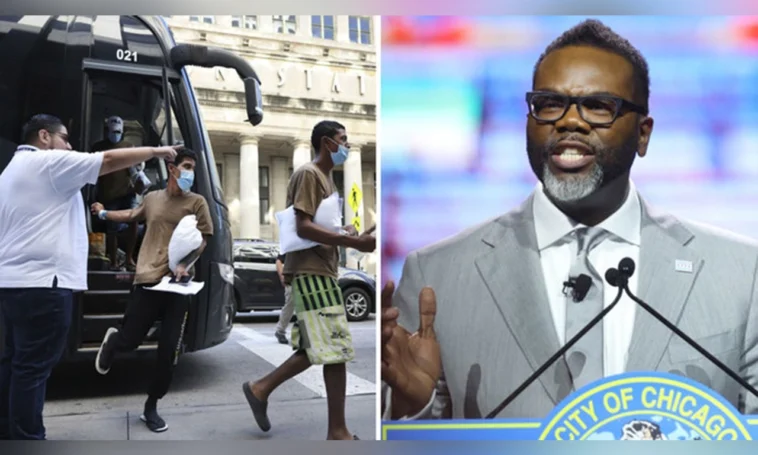South Side Chicago pastor says ‘faith in government is very low’ after observing city resources directed towards migrants.A South Side Chicago pastor expressed frustration, stating “faith in government is very low” after witnessing city resources allocated to migrants instead of local community needs. This sentiment reflects growing concerns among residents about the prioritization of city funds.
Pastor Corey Brooks, a renowned community leader and founder of Project H.O.O.D, has expressed his deep disappointment and frustration with the city of Chicago’s handling of the ongoing migrant crisis. In a recent interview with Fox News Digital, Brooks shared his concerns about the city’s prioritization of migrant care over the needs of native Chicagoans.
Brooks, who has dedicated his life to improving the lives of residents on the South Side of Chicago, stated that his “faith in government is very low” after witnessing the city’s response to the migrant crisis. He emphasized that the city’s infrastructure is already overburdened, and the addition of thousands of migrants has only exacerbated the problem.
“It’s been overwhelming,” Brooks said. “We already have an infrastructure that is overburdened, and we already have a city that is already overtaxed. And now you’re adding individuals who, for the most part, are here illegally, and now we’re having to carry that burden.”
Brooks’ organization, Project H.O.O.D (Helping Others Obtain Destiny), has been working tirelessly to provide mentorship, training, and community support to residents in Chicago’s South Side. Despite the challenges, Brooks has remained committed to his mission, even going so far as to spend 345 days on a Chicago rooftop in 2022 as part of a fundraising campaign. The effort raised nearly $30 million toward the construction of a new community center aimed at curbing crime and creating job opportunities.
However, Brooks feels that the city’s response to the migrant crisis has neglected the needs of native Chicagoans. He believes that the city’s resources are being diverted to support migrant care, leaving long-standing community issues unaddressed.
“When we make our city a sanctuary city and we start allowing people to be here illegally and having to take care of them, that is going to be a problem that is overwhelming,” Brooks said. “The leadership has been taking funds from much-needed areas, and they’re getting a lot of flack for it.”
Brooks’ concerns are echoed by many residents who feel that the city’s prioritization of migrant care has come at the expense of existing community needs. Despite the city’s efforts to roll back some accommodations for migrants, including the shutdown of temporary shelters and the eviction of migrants from shelters after 60 days, Brooks remains skeptical about the city’s commitment to addressing the needs of native Chicagoans.
“Thinking that city government is going to somehow now shift their philosophy, and as migrants are being moved out, start to take care of our community… That’s not going to happen,” Brooks said. “The history speaks for itself. They’re not going to do it. They’re going to find other things to invest in, anything but this community.”
Brooks’ comments highlight the ongoing tensions between community leaders and city officials over the handling of the migrant crisis. While the city has made efforts to address the influx of migrants, many residents feel that the response has been inadequate and has neglected the needs of native Chicagoans.




Join the Community and Be a Part of the Conversation
You must be logged in or registered to post a comment.